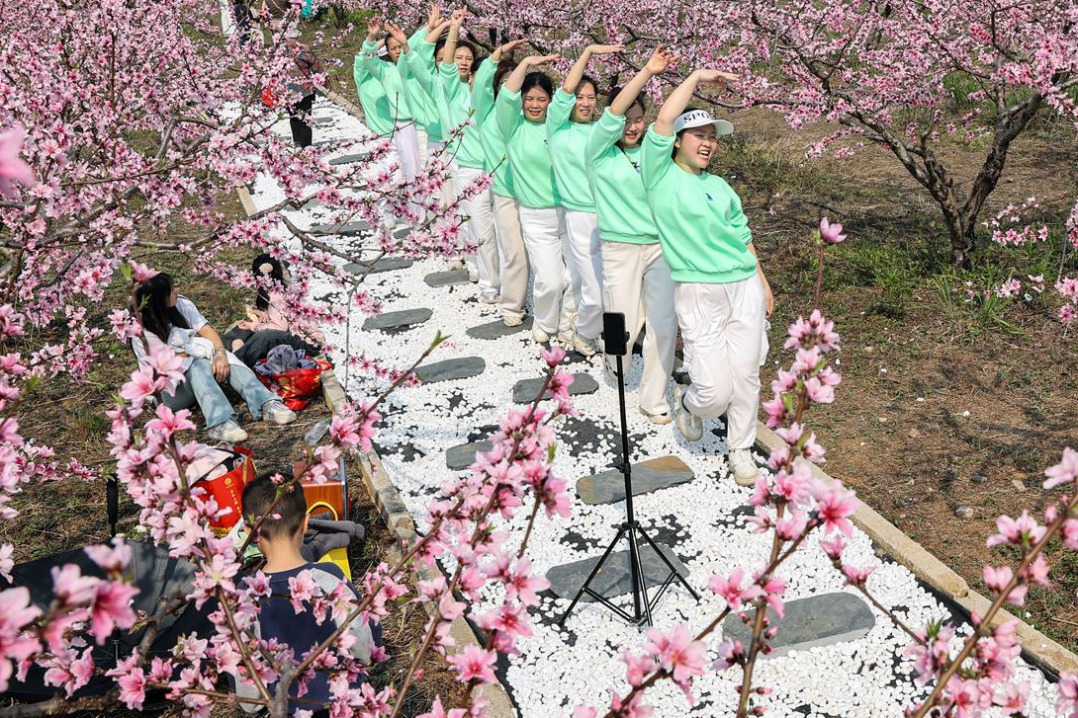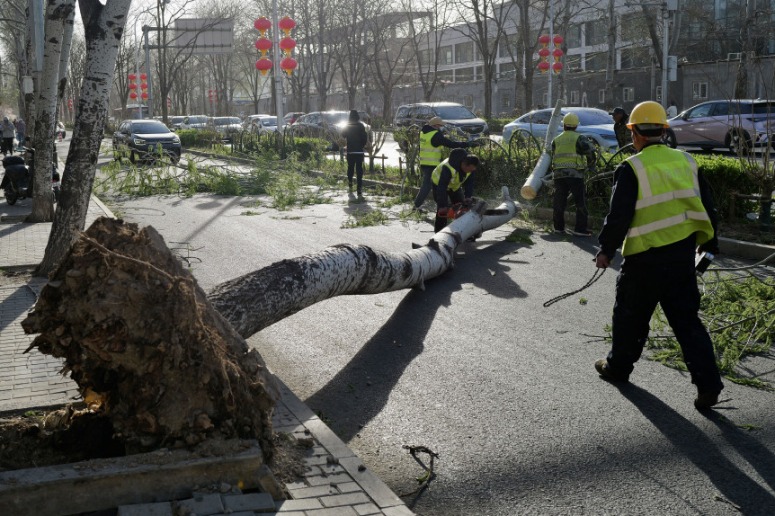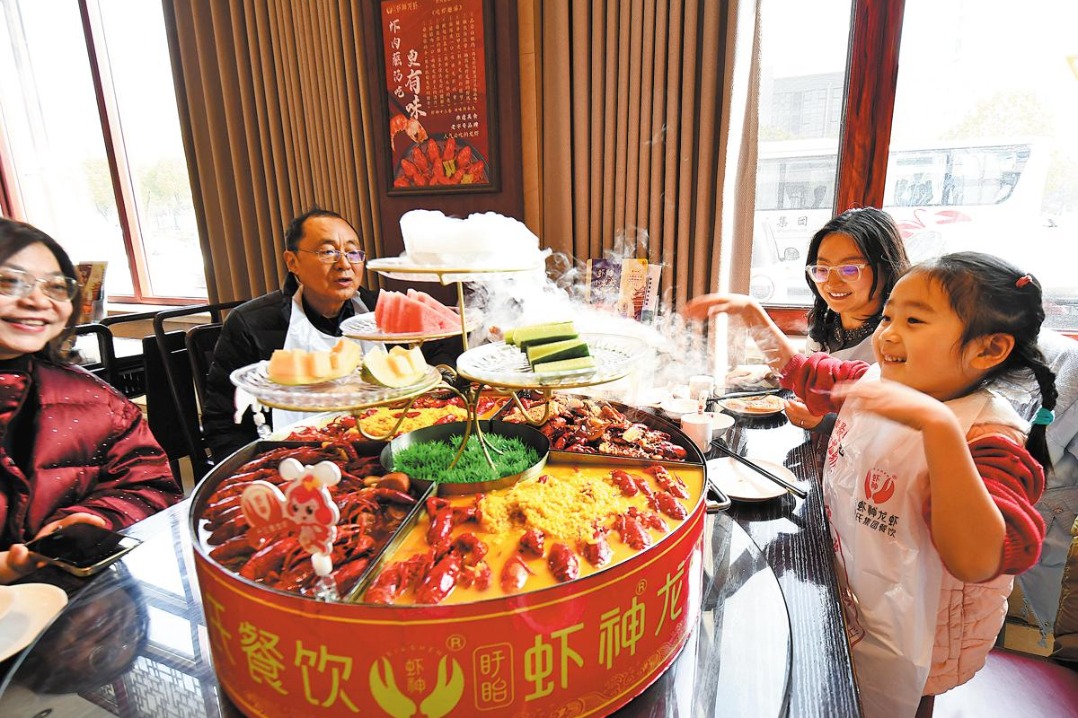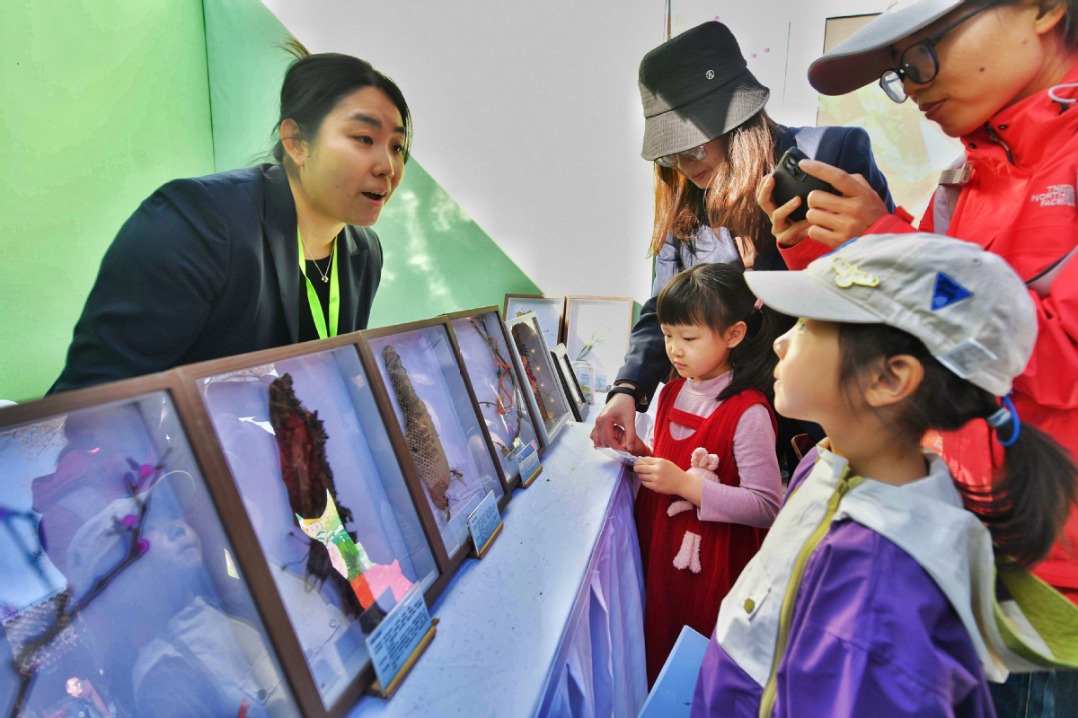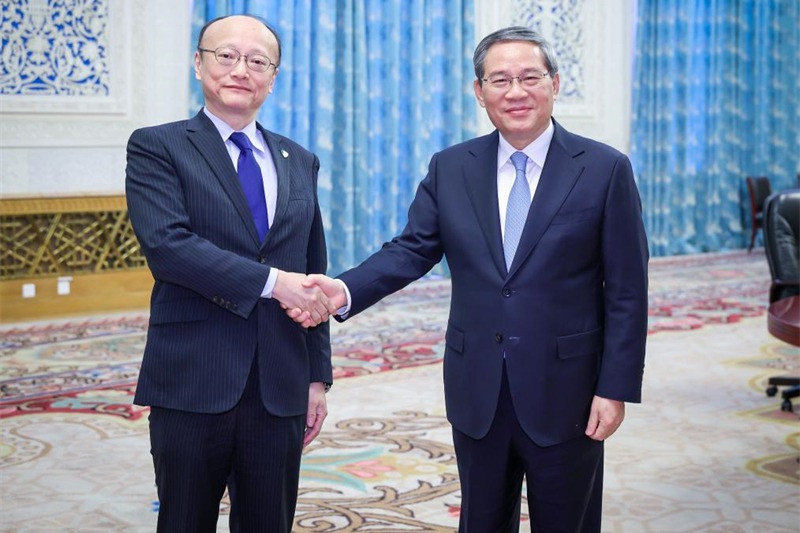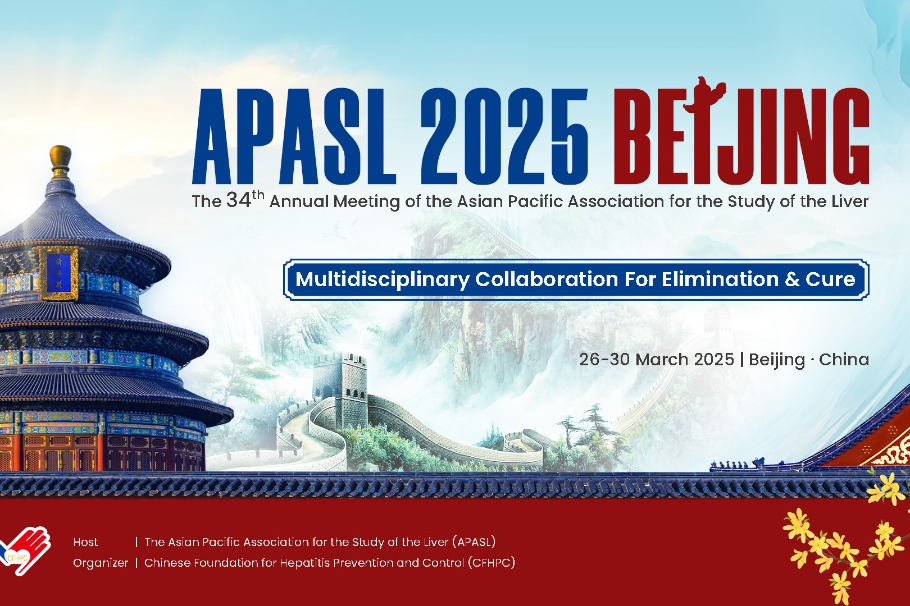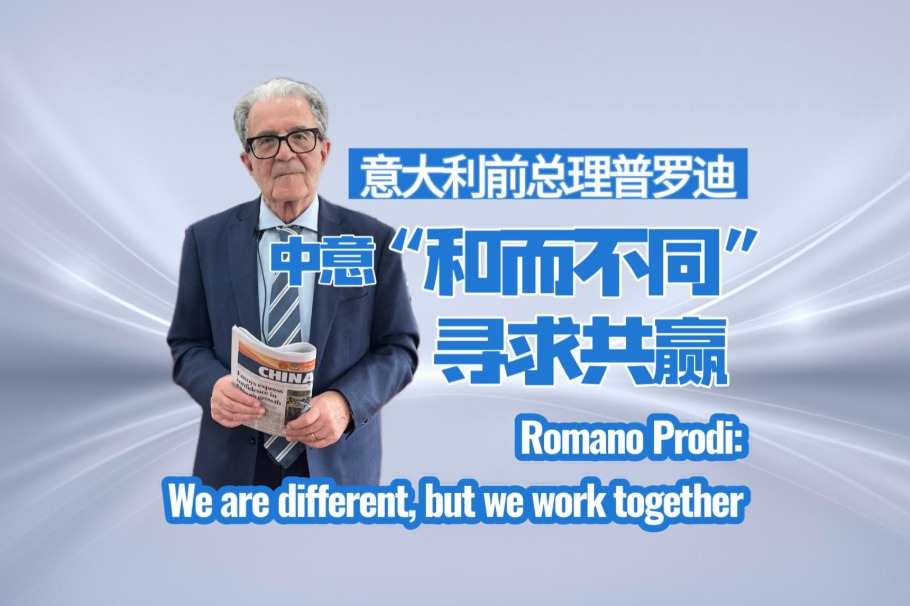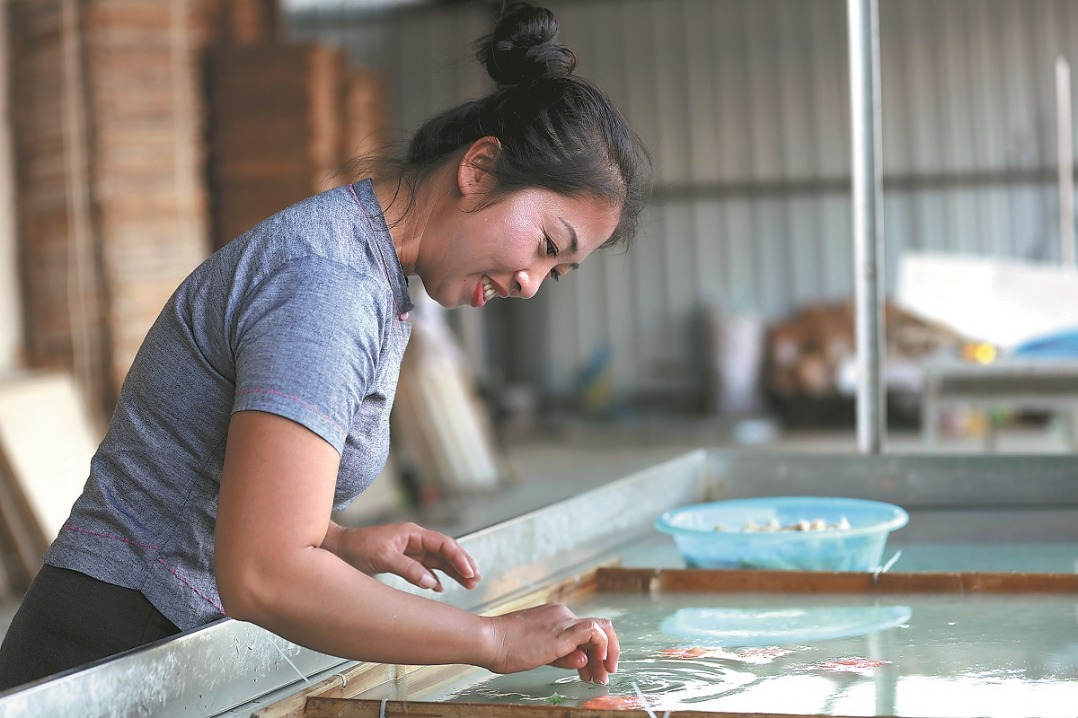Hollowing out of TSMC not beneficial for Taiwan
DPP authorities' attempts to pay 'protection fee' to US by selling out semiconductor industry misguided

Editor's note: The Taiwan question is a key focus for China and the international community. China Daily is publishing a series of reports to track hot Taiwan-related topics and address disinformation from the Democratic Progressive Party administration.
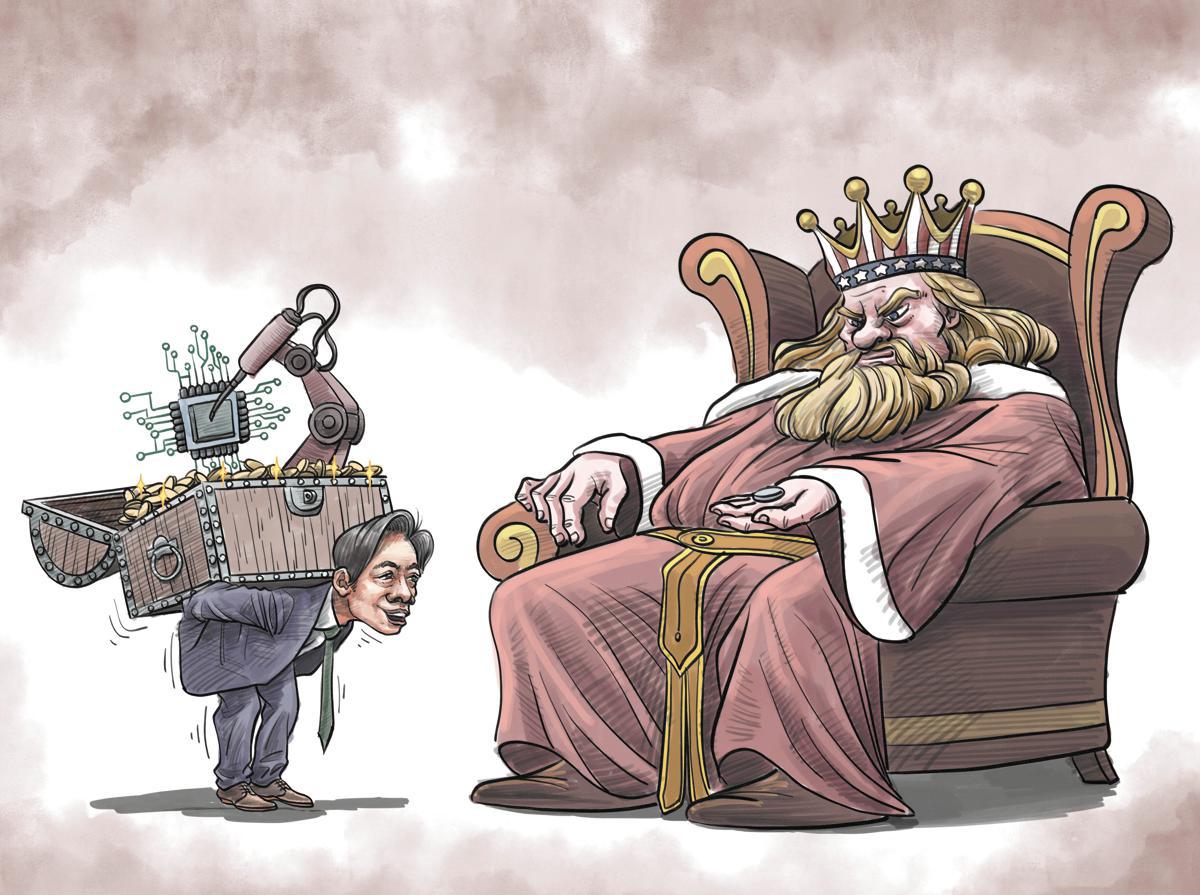
Amidst rising concerns in Taiwan over the Democratic Progressive Party's latest move to further "sell out" its competitive semiconductor industry to the United States, doubts are surfacing that the "protection fee" paid won't be enough to buy security from the US.
Analysts said the recent announcement of Taiwan Semiconductor Manufacturing Co's substantial investments in Arizona under pressure from the US has sparked fears that Taiwan's industrial edge may be compromised.
Critics accuse the DPP authorities of succumbing to US political pressures for their own political gain, attempting to rely on the US to back them against the Chinese mainland. These critics noted that the US will inevitably abandon Taiwan in the end.
In a joint announcement with the US this month, TSMC said it will invest at least another $100 billion in the US over the next few years to build state-of-the-art semiconductor manufacturing facilities.
This investment will be allocated toward a research and development center, two advanced packaging facilities, and three more semiconductor foundries in addition to the three already in operation or under construction in Arizona, according to the announcement.
In recent years, the US has repeatedly accused Taiwan of "stealing" from the US chip industry and has threatened to impose tariffs of up to 100 percent on imported chips. The additional funding brings TSMC's total investment in the US to $165 billion, a move the US claimed could help the chipmaker avoid tariffs.
Zou Zhiqiang, deputy secretary-general of the US-based Alliance for China's Peaceful Reunification, raised concerns over the growing trend of TSMC not only shifting its manufacturing processes but also gradually transferring high-end research and development operations to the US.
The apparent attempt behind these moves suggests a clear intention to essentially take away TSMC, said Zou, who warned that if TSMC were to be hollowed out, Taiwan's industrial advantages would further deteriorate.
The moves have raised public concern on the island. More than 80 percent of Taiwan residents oppose transferring TSMC's advanced technology to the US, a survey conducted by the island-based Foundation for the People last month showed.
As for whether Taiwan's semiconductor industry serves as a "silicon shield" that would prompt military intervention from the US and other Western countries if cross-Strait conflict broke out, 62.5 percent agreed and 30.8 percent disagreed, according to the survey.
However, Taiwan leader Lai Ching-te and the DPP authorities have denied that these latest moves are the outcome of US pressure, claiming the moves benefit the industry, dismissing such concerns as unnecessary.
Chen Binhua, a spokesman for the State Council Taiwan Affairs Office, said the DPP's rhetoric is like them being openly insulted and smiling in return, and then attempting to hide the insult but instead making it even more apparent.
Calling the moves "beneficial to the industry" actually means being beneficial to the US industry, Chen said, adding that the DPP authorities are shamelessly "selling out Taiwan" with no limits in order to rely on the US for separation.
In a recent social media post, Ma Ying-jeou, a former leader of Taiwan, expressed concerns over the transfer as a significant security crisis in Taiwan, emphasizing the negative impacts on public confidence, cross-Strait relations and Taiwan's future geopolitical position.
"Does Lai's administration believe that selling TSMC to the US as 'protection money' paid will allow them to continue advocating 'Taiwan independence' externally and fostering internal confrontation?" he questioned. Ma added that the US prioritizes its own interests above all else.
Zou, from the US, said despite widespread criticism likening the US actions to plunder, the current DPP administration in Taiwan is prioritizing personal gains, with the stubborn mindset of seeking separation through US support. "However, this may not necessarily secure a guarantee of safety for Taiwan from the US," said Zou, who pointed out that even in the event of a crisis in Taiwan, the US would need not be concerned about fundamental impacts on the chip industry.
He criticized the DPP for banking on the US as a shield to implement anti-China policies. "The US sees Taiwan merely as a pawn in its larger strategy against the mainland, and once Taiwan's utility is exhausted, it can be discarded like a disposable piece on the chessboard," he said.
Chen, the mainland spokesman, also slammed the US for talking about "supporting Taiwan", while its actions only harm and destroy the island.
Raymond Greene, director of the American Institute in Taiwan, said in a recent interview that what the US does in Taiwan is to "make Taiwan stronger, safer and more prosperous", and the two sides can build a "non-Chinese supply chain" in areas such as drones and robotics.
Chen said pressuring TSMC to invest up to $100 billion in the US to build the world's largest chip industry raises the question of whether this strengthens Taiwan or merely "makes America great again". Chen denounced the move to decouple Taiwan's trade and industrial ties with the mainland as contradicting economic logic, citing data that total trade between the two sides reached $292.97 billion in 2024, a 9.4 percent year-on-year increase.
He said that in the first two months of this year alone, trade totaled $43.18 billion, rising by 8.8 percent year-on-year and demonstrating that economic ties remain robust and supply chains resilient.
Cai Peihui, a deputy from the Taiwan delegation to the 14th National People's Congress, said while the US publicly advocates peace, its increased arms sales to Taiwan and efforts to lure Taiwan companies like TSMC to invest in the US are actually aimed at complicating cross-Strait relations and imposing economic pressure on Taiwan.
Through interactions with many Taiwan compatriots, Cai noted a growing awareness among them that the US is not reliable and its actions pose a threat to the stability of the Taiwan Strait, impacting the normal lives, happiness and security of the Taiwan people.
Cai called for resolute resistance against the actions of the US, urging unity among Taiwan compatriots to collectively safeguard the interests of both sides of the Strait.
Contact the writers at zhangyi1@chinadaily.com.cn

















